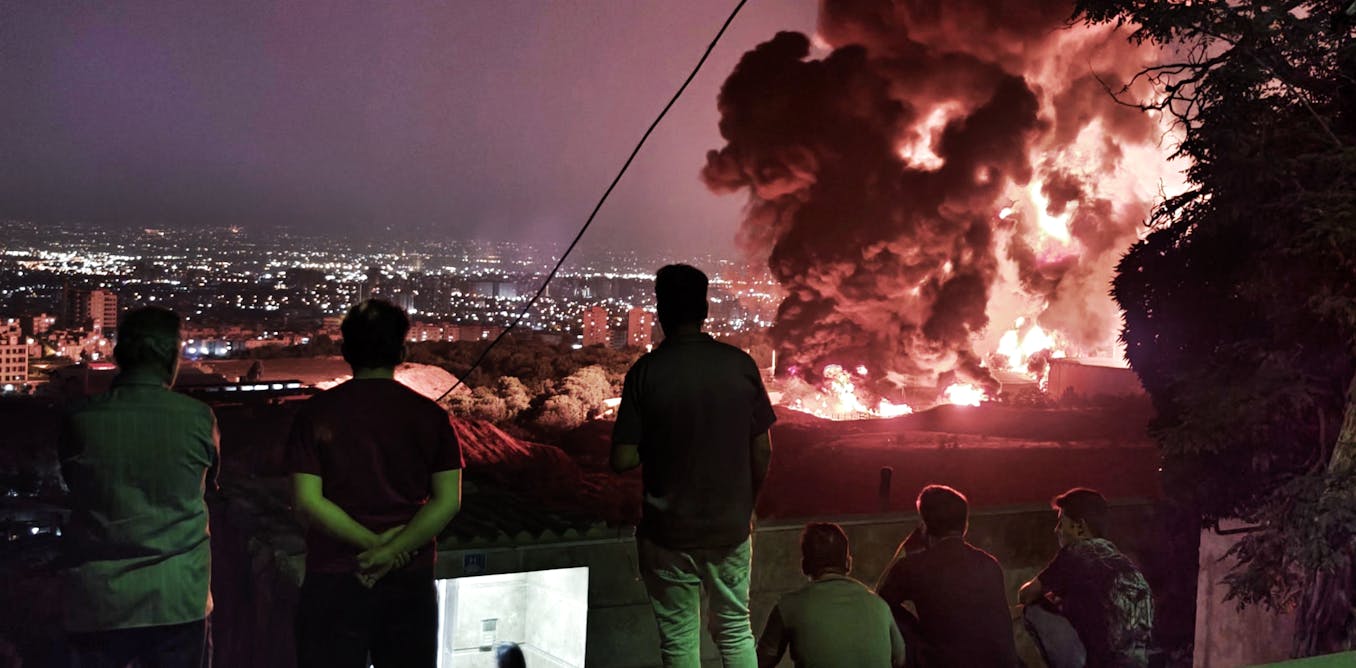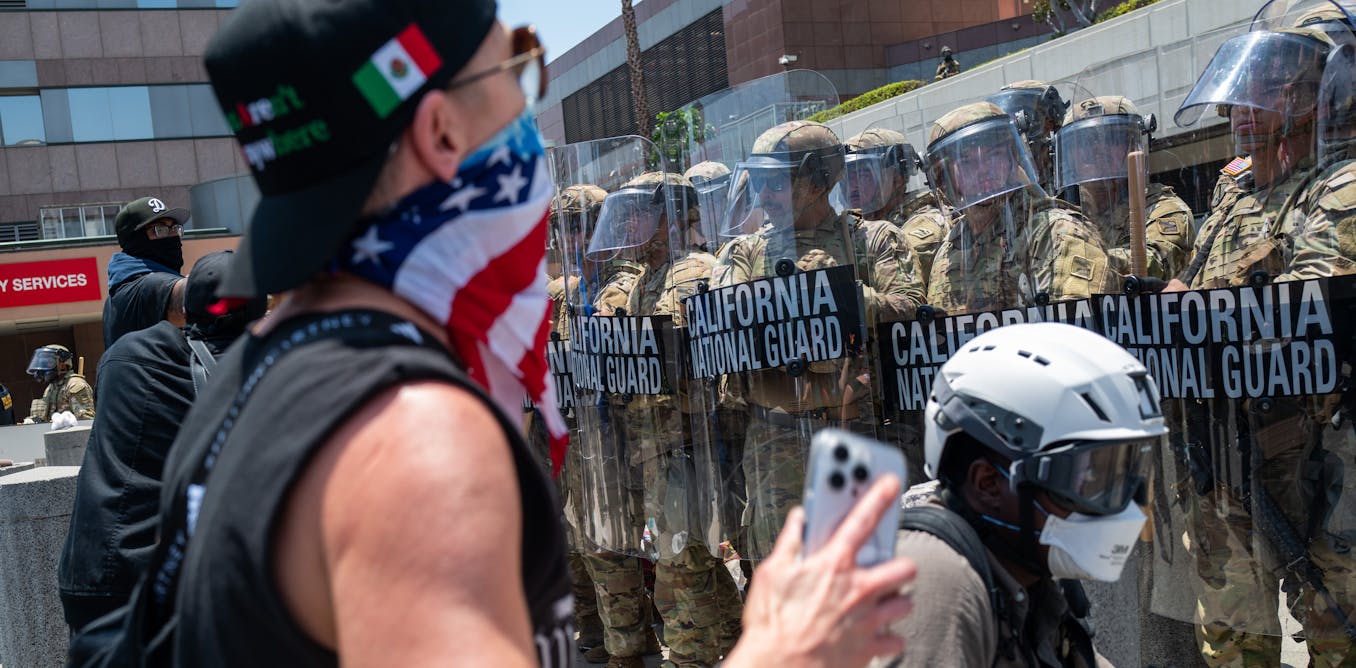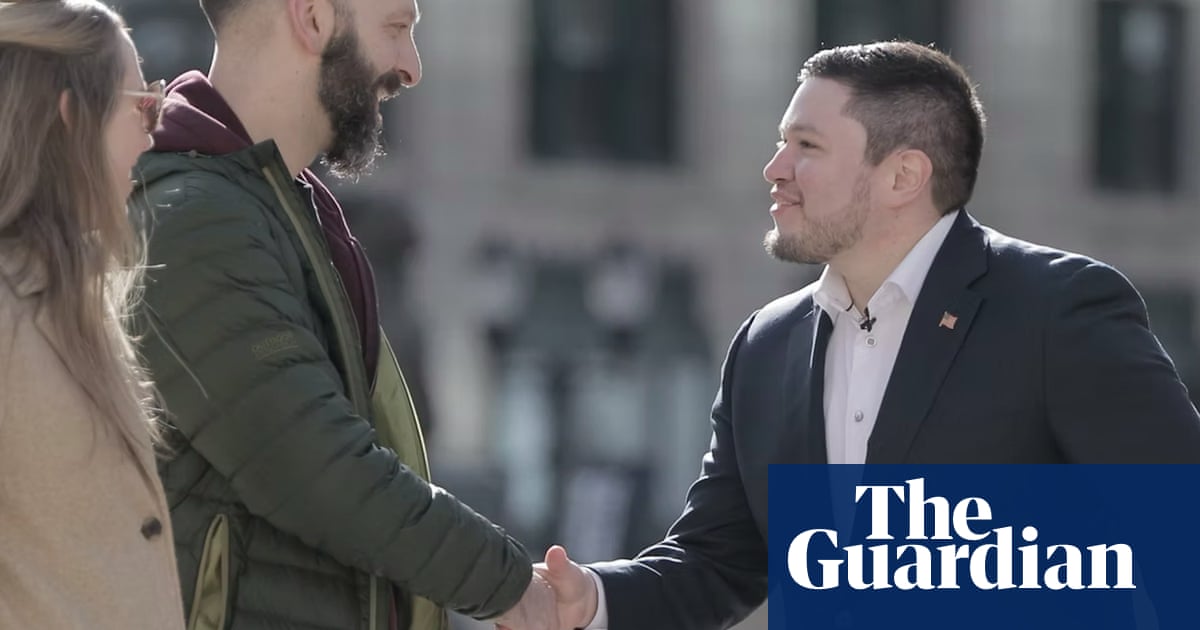A federal appeals court appears poised to permit President Donald Trump’s deployment of National Guard troops in Los Angeles to continue uninterrupted despite the protests of California Gov. Gavin Newsom.
During an hourlong argument session Tuesday, a three-judge panel sharply questioned Newsom’s argument that Trump had failed to sufficiently justify his decision to send 4,000 National Guard troops to protect federal buildings and support immigration authorities as they conduct arrests and enforcement operations.
Instead, the judges appeared to lean on centuries-old principles — backed at times by the Supreme Court — giving the president vast discretion to deploy the military to suppress civil unrest.
The 9th Circuit Court of Appeals panel featured Trump appointees Eric Miller and Mark Bennett, as well as Biden appointee Jennifer Sung. All appeared openly skeptical of California’s position that courts can second-guess Trump’s determination that immigration protests in Los Angeles had amounted to a potential “rebellion” against the government.
A ruling in Trump’s favor would be a blow to Newsom’s legal push to regain control of his state’s National Guard troops, which he claims have been illegally commandeered and diverted from critical missions like fire prevention and drug interdiction. Newsom may choose to appeal a loss to a larger panel of the 9th Circuit or to the Supreme Court.
A federal district judge, Charles Breyer, backed Newsom’s position last week, ordering Trump to relinquish control of the Guard troops. But the three-judge panel of the 9th Circuit quickly put Breyer’s order on hold and scheduled Tuesday’s hearing to consider the matter.
Though the three judges didn’t officially rule on the matter Tuesday, their leanings were apparent from the start. They noted legal precedents as far back as 1827 in which courts have agreed they have little to no role in examining the validity of a presidential determination on matters of rebellion and unrest. That Supreme Court precedent, in a case known as Martin v. Mott, found that the president is “exclusively vested” with the power to call up military forces to suppress unrest and that “his decision is conclusive upon all other persons.”
“If we were writing on a blank slate, I would tend to agree with you,” Sung said to California’s attorney Sam Harbourt, before noting that the nearly two-century-old Supreme Court decision “seemingly rejected the exact argument that you’re making.” Sung questioned Harbourt pointedly twice more and notably asked no questions of the Justice Department’s lawyer, Brett Shumate.
Harbourt said Newsom and other officials were not dismissing the seriousness of the unrest in Los Angeles, but the situation was far from requiring military intervention.
“It is of profound concern to the leaders of the state, but the state is dealing with it. Local law enforcement agencies are doing their job of dealing with it,” the state’s lawyer said.
Still, Harbourt argued that Trump should have been required to pursue more “moderate” responses to the unrest before taking the most “extreme” option of sending in the military. But the judges suggested the wisdom or proportionality of a particular decision is different than whether the president is legally prohibited from making it.
Bennett and Miller also seemed dubious about Newsom’s argument that federal law required Trump to consult the governor or at least inform him directly about the decision to federalize the troops normally under state control.
Bennett noted that the federal law Trump invoked requires orders activating the National Guard to be issued “through the governor,” but the judge suggested that was different than demanding that the president engage in a back-and-forth with the state’s top official.
“Where does the statute say that issuing it through the governor requires either the governor’s consent or requires consultation with the government?” Bennett asked.
Miller expressed a similar view.
Harbourt insisted that what Trump actually did — sending the orders through the general who oversees California’s National Guard rather than Newsom’s office — raised “very serious constitutional questions” and risked “blurring the lines of political accountability.”
But Shumate called the routing of the order at worst “a procedural foot fault” and said it didn’t matter whether Trump sent the order to the general or to Newsom directly.
Shumate also warned that Newsom’s interpretation of the law could produce a standoff when time is of the essence.
“Under their reading of the statute, Governor Newsom could pocket veto the president's orders, not convey them, and wait for somebody to come down to Sacramento and consult with him before he issues that order. That is not what the statute says,” the DOJ attorney said.

 German (DE)
German (DE)  English (US)
English (US)  Spanish (ES)
Spanish (ES)  French (FR)
French (FR)  Hindi (IN)
Hindi (IN)  Italian (IT)
Italian (IT)  Russian (RU)
Russian (RU) 























Comments